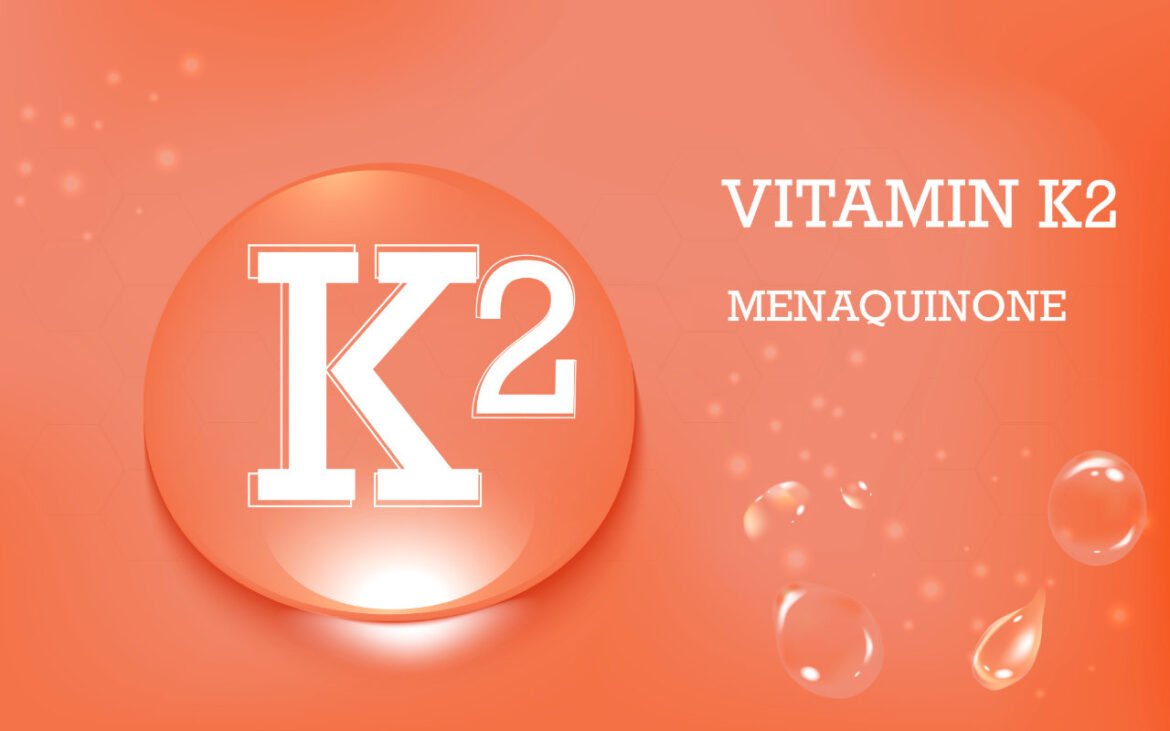Have you ever wondered why some people seem to have stronger bones and healthier hearts as they age, while others struggle with osteoporosis and cardiovascular issues? The answer might lie in a lesser-known nutrient that’s been quietly working behind the scenes in our bodies – vitamin K2. This powerhouse nutrient is gaining serious attention in the wellness world, and for good reason.
Vitamin K2 isn’t just another vitamin to add to your supplement stack. It’s literally a traffic director for calcium in your body, making sure this crucial mineral ends up where it should (your bones) and not where it shouldn’t (your arteries). As we head into 2025, researchers are calling vitamin K2 one of the most underappreciated nutrients for maintaining long-term health.
What Exactly Is Vitamin K2?
Let’s clear up some confusion right off the bat. There’s vitamin K1 and vitamin K2, and they’re not the same thing – though they’re often lumped together like they’re identical twins.
Vitamin K1 (phylloquinone) is what you get from leafy greens like spinach and kale. It’s primarily responsible for blood clotting – pretty important stuff, but that’s mostly where its job ends. Vitamin K2 (menaquinone), on the other hand, is the multitasker of the vitamin K family. It’s produced by bacteria and plays crucial roles in bone formation and cardiovascular health.
But here’s where it gets interesting – vitamin K2 comes in different forms, and understanding these differences can literally make or break your supplementation strategy.
MK-4 vs MK-7: The Battle of the Menaquinones
The two main forms you’ll encounter are MK-4 and MK-7, and they couldn’t be more different in how they work:
MK-4 is found primarily in animal products like egg yolks and fatty meats. It has a short half-life, which means your body absorbs it quickly but also eliminates it just as fast. Think of it as the sprint runner of the vitamin K2 world.
MK-7, found in fermented foods like natto (fermented soybeans), is the marathon runner. It has an impressive 72-hour half-life, meaning it sticks around in your system much longer, providing sustained benefits. This longer presence in your bloodstream makes MK-7 particularly effective for both bone and heart health benefits.
The Science Behind Vitamin K2’s Health Benefits
Bone Health: Building Stronger Foundations

Here’s something that might surprise you – calcium alone isn’t enough for strong bones. Without vitamin K2, calcium can’t properly integrate into your bone matrix. Vitamin K2 activates a protein called osteocalcin, which is essentially calcium’s GPS system, directing it to your bones where it belongs.
Multiple meta-analyses have shown that vitamin K2 supplementation can improve bone mineral density, particularly in postmenopausal women who are at higher risk for osteoporosis. One study followed over 4,800 women and found that those with higher vitamin K2 intake had significantly lower rates of hip fractures.
However, let’s be honest about the research – while promising, some studies show mixed results. The scientific community is calling for longer, higher-quality studies to cement these benefits. What we do know is that vitamin K2 works synergistically with vitamin D3 and calcium, making it a crucial piece of the bone health puzzle.
Heart Health: Keeping Arteries Flexible
This is where vitamin K2 really shines, and the research is pretty compelling. The nutrient activates a protein called Matrix Gla Protein (MGP), which prevents calcium from depositing in your arteries. Think of MGP as a bouncer at a club – it keeps calcium out of places where it doesn’t belong.
A massive observational study involving over 220,000 participants found that people with higher vitamin K2 intake had significantly lower rates of coronary heart disease. Research in this field, showed that participants with the highest vitamin K2 intake had a lower risk of dying from heart disease.
MK-7 appears to be particularly effective for cardiovascular health. Research shows it can slow the progression of arterial calcification and may reduce cardiac events in high-risk populations. The Cleveland Clinic notes that vitamin K2’s role in preventing arterial calcification makes it a valuable nutrient for long-term heart health.
Comparing MK-4 and MK-7: Which Should You Choose?
| Feature | MK-4 | MK-7 |
| Source | Animal products | Fermented foods |
| Half-life | 1-2 hours | 72 hours |
| Absorption | Quick, requires frequent dosing | Slow, sustained release |
| Bone Benefits | Effective with higher doses | Strong evidence at lower doses |
| Heart Benefits | Some evidence | More pronounced benefits |
| Bioavailability | Lower | Higher |
For most people, MK-7 is the preferred choice due to its superior bioavailability and longer-lasting effects. You can take it once daily and maintain steady blood levels throughout the day. MK-4 requires multiple doses to maintain therapeutic levels, though it may have unique benefits that we’re still discovering.
Natural Sources of Vitamin K2
Getting vitamin K2 from food can be challenging if you’re following a typical Western diet. Here are the best natural sources:
Natto is by far the richest source, containing an astounding amount of MK-7. Just 100 grams provides over 1,000 mcg of vitamin K2. The problem? It’s an acquired taste that many Westerners find challenging.
Fermented cheeses like Gouda, Brie, and Edam are excellent sources, particularly of longer-chain menaquinones. Hard cheeses generally contain more vitamin K2 than soft varieties.
Egg yolks from pasture-raised chickens contain MK-4. The key here is pasture-raised – conventional eggs contain significantly less.
Organ meats and fatty cuts of grass-fed beef provide MK-4. Liver is particularly rich in this form of vitamin K2.
Chicken thighs and dark meat contain moderate amounts of MK-4, especially if the birds were pasture-raised.
The challenge is that most people don’t eat enough of these foods regularly. This is why vitamin K2 supplementation has become increasingly popular, especially among health-conscious individuals looking to optimize their bone and heart health.
Choosing the Best Vitamin K2 Supplements

Shopping for vitamin K2 supplements can be overwhelming, but here’s what to look for:
Form matters most – Look for clearly labeled MK-7 content. Many supplements will simply say “vitamin K2” without specifying the form. MK-7 is generally preferred for its bioavailability and sustained action.
Dosage considerations – Most adults benefit from 90-120 mcg daily, though some clinical trials have used higher doses (up to 180-360 mcg) for specific conditions. Studies show that MK-7 maintains adequate blood levels at lower doses compared to MK-4.
Combination formulas can be beneficial – Many effective supplements combine vitamin K2 with vitamin D3, as these nutrients work synergistically. The combination supports both calcium absorption (D3) and proper calcium placement (K2).
Quality indicators – Look for third-party testing, GMP certification, and reputable brands. Some supplements use synthetic MK-7 while others use naturally-derived forms – both can be effective.
Always consult with a healthcare professional before starting supplementation, especially if you’re taking blood-thinning medications, as vitamin K2 can affect blood clotting.
The Vitamin K2 and D3 Connection
Here’s something most people don’t realize – vitamin K2 and vitamin D3 are like dance partners. They work together to optimize calcium metabolism in ways that neither can achieve alone.
Vitamin D3 increases calcium absorption from your intestines, but without vitamin K2, that calcium might end up in your arteries instead of your bones. This is why some researchers suggest that taking high doses of vitamin D3 without adequate vitamin K2 might actually increase cardiovascular risk.
Many health experts now recommend taking these nutrients together. The synergistic relationship between D3 and K2 ensures that calcium is properly utilized throughout your body.
If you’re interested in learning more about vitamin D3 and its comprehensive health benefits, check out our complete guide to vitamin D for detailed information on dosing, benefits, and optimization strategies.
Who Should Consider Vitamin K2 Supplementation?
Postmenopausal women are prime candidates due to increased osteoporosis risk and declining estrogen levels that affect bone metabolism.
People with poor dietary intake of fermented foods or organ meats may not get adequate vitamin K2 from food sources alone.
Those at cardiovascular risk might benefit from K2’s arterial health benefits, though this should be discussed with healthcare providers.
Individuals taking high-dose vitamin D3 should consider vitamin K2 to ensure proper calcium metabolism.
Vegetarians and vegans may have lower vitamin K2 status since the best sources are animal products and fermented foods.
Potential Side Effects and Interactions
Vitamin K2 is generally well-tolerated, but there are some important considerations:
Blood-thinning medications like warfarin can be affected by vitamin K2 intake. If you’re on anticoagulant therapy, work closely with your doctor to monitor your INR levels.
Digestive issues are rare but can occur with high doses. Starting with lower amounts and gradually increasing can help minimize any stomach upset.
Drug interactions are possible, particularly with antibiotics that might affect the bacteria producing vitamin K2 in your gut.
Most people can take vitamin K2 supplements without issues, but it’s always wise to consult healthcare professionals, especially if you have existing health conditions.
The Future of Vitamin K2 Research
The scientific community is increasingly interested in vitamin K2, and ongoing research is exploring its potential roles in:
Cognitive health – Some preliminary studies suggest vitamin K2 might support brain health and cognitive function.

Cancer prevention – Early research indicates possible protective effects against certain cancers, though more studies are needed.
Insulin sensitivity – Some evidence suggests vitamin K2 might play a role in glucose metabolism and diabetes prevention.
Inflammation – Research is exploring K2’s potential anti-inflammatory effects throughout the body.
Practical Tips for Maximizing Vitamin K2 Benefits
Take with fat – Since vitamin K2 is fat-soluble, taking it with a meal containing healthy fats improves absorption.
Consistent timing helps maintain steady blood levels, especially important with MK-4 supplements that have shorter half-lives.
Consider your overall diet – If you’re getting vitamin K2 from foods like cheese and eggs, you might need less supplementation.
Monitor your progress – While you can’t feel vitamin K2 working, regular bone density scans and cardiovascular health markers can help track its benefits over time.
For those interested in optimizing their supplement routine, our guide on powerful natural supplements that work provides comprehensive information on building an effective supplement protocol.
Frequently Asked Questions
How long does it take to see benefits from vitamin K2?
Most research suggests that bone health benefits may take 6-12 months to become apparent on bone density scans. Cardiovascular benefits might be measurable sooner, but significant changes typically require consistent supplementation over many months.
Can I get enough vitamin K2 from food alone?
It’s challenging but possible if you regularly consume fermented foods like natto or eat significant amounts of organ meats and fermented cheeses. Most Western diets provide insufficient vitamin K2, making supplementation practical for many people.
Is vitamin K2 safe for children?
Vitamin K2 appears safe for children, and some pediatric research suggests it might benefit bone development. However, always consult with a pediatrician before giving supplements to children.
Does cooking destroy vitamin K2?
Vitamin K2 is relatively stable during cooking, unlike some other vitamins. However, fermented sources like natto are typically consumed without heating to preserve maximum nutrient content.
Can vitamin K2 reverse arterial calcification?
While vitamin K2 can slow the progression of arterial calcification and may even slightly reverse it in some cases, established plaque is difficult to eliminate completely. Prevention and slowing progression are more realistic goals.
Making Vitamin K2 Work for You
Vitamin K2 represents one of those rare nutrients that offers significant benefits for multiple body systems simultaneously. Its role in directing calcium to bones while keeping it out of arteries makes it uniquely valuable for long-term health.
Whether you choose to increase vitamin K2 through dietary sources or supplementation depends on your current diet, health goals, and lifestyle. The key is consistency – like most nutritional interventions, vitamin K2 works best when it’s part of a long-term health strategy.
For those focused on comprehensive wellness, vitamin K2 fits beautifully into a holistic approach that includes proper nutrition, regular exercise, and other evidence-based health practices. Consider exploring our articles on antioxidant-rich foods and essential lifetime health habits to build a complete foundation for optimal health.
The evidence supporting vitamin K2 for bone and heart health continues to grow, and its importance in 2025 and beyond seems assured. By understanding its mechanisms, choosing quality sources, and using it consistently, you can harness the power of this remarkable nutrient to support your long-term health goals.
Remember, while vitamin K2 is powerful, it works best as part of a comprehensive approach to health that includes a balanced diet, regular physical activity, stress management, and other healthy lifestyle practices. The journey to optimal health isn’t about finding a single magic bullet – it’s about consistently making informed choices that support your body’s natural healing and maintenance processes.


